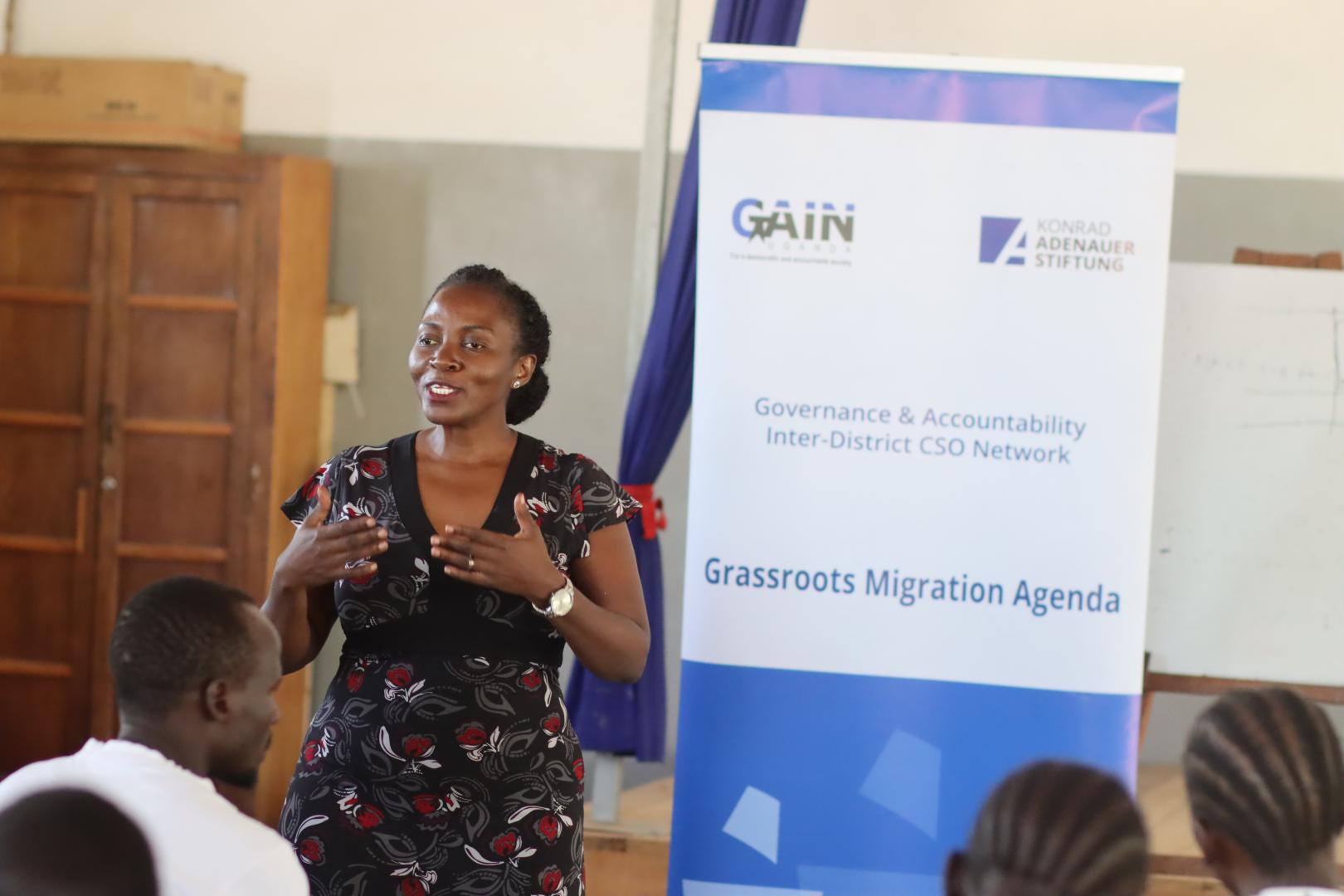The demand for cheap labor in the Middle East has led to the recruitment of millions of workers from various parts of the world, including Uganda. One of the most common types of labor that is outsourced to these countries is domestic work.
Domestic work is often considered as women's work and is therefore undervalued and underpaid. This unfortunately continues to reinforce traditional gender roles and limit women’s opportunities for social and economic mobility. In Uganda, women and youth from rural areas are regularly the ones who engage in domestic work, either as full-time or part-time workers. However, due to the low wages and poor working conditions in their home countries, many of them are forced to seek employment opportunities elsewhere.
Together with GAIN Uganda, KAS Uganda and South Sudan conducted grassroots migration agenda dialogue workshops from 12th to 15th April, 2023 in the districts of Jinja, Manafwa and Pallisa. These districts contribute greatly to the number of female migrant domestic workers to the Middle East, partly due to the high poverty rates. The dialogues’ theme was thus “Labor externalisation’’. The participants ranged from recruitment agencies, religious leaders, civil servants, CSO leaders, political leaders and community members. Participants were sensitized about migrant domestic work; its pros and cons as well as the legal and policy frameworks available for the protection of migrant workers to empower them for informed decision making.
A team of experts on the theme expounded on salient issues that underscore migration, human trafficking and migrant labour such as poverty, unemployment, and illiteracy A presentation by Mr. Stephen Kaija, an assistant regional police commander for Kyoga region triggered participants on the current realities, global trends and challenges associated with migration. He observed that until the grassroots are sensitized and empowered, ensuring safe migration will remain a dream.
The Local Council (LC) systems don’t seem to understand the powers entrusted to them, resulting into failure to document and track persons moving from their villages. LC1s for example certify travel documents, the most common one being, “Ebaluwa-ya-Chairman”, an introductory letter that proves individual identity at the grassroots. Mr.Galogitho Stephen, a Programme Manager at GAIN Uganda observed that domestic labor migrants go to do the very same jobs that they leave behind but the difference is that the salaries abroad seem to be more rewarding. The wages earned are often much higher than what they would earn in Uganda. By sending remittances back to their families, the workers help to fund education and other expenses of their families.
During the engagement, some of the former domestic workers; Florence Nandutu, Harriet Namono, Gloria Kakhai, Sylvia Nandutu and Daniel Wambedde among others shared their lived experiences while working in the Middle East. Their testimonies were both positive and negative. The negatives included; exploitation, abuse, and poor working conditions whilst the positives included: income for their families which had struggled to make ends meet; learning new languages, developing their interpersonal skills, and gaining experience in various aspects of domestic work which increase their employability both in Uganda and abroad.
In a nutshell, the labor externalization of domestic workers to the Middle East has had a significant impact on the families and communities of these workers. While labor externalization can provide a source of income and opportunities for youth and women, it can lead to the breakdown of families and perpetuate gender inequality. It can also result into human rights violations. It is therefore important for policymakers and stakeholders to address the negative impacts of labor externalization and promote policies that protect the rights of domestic workers and their families. This can include regulating recruitment agencies, enforcing labor laws, and promoting education and training opportunities for youth and women in Uganda.





